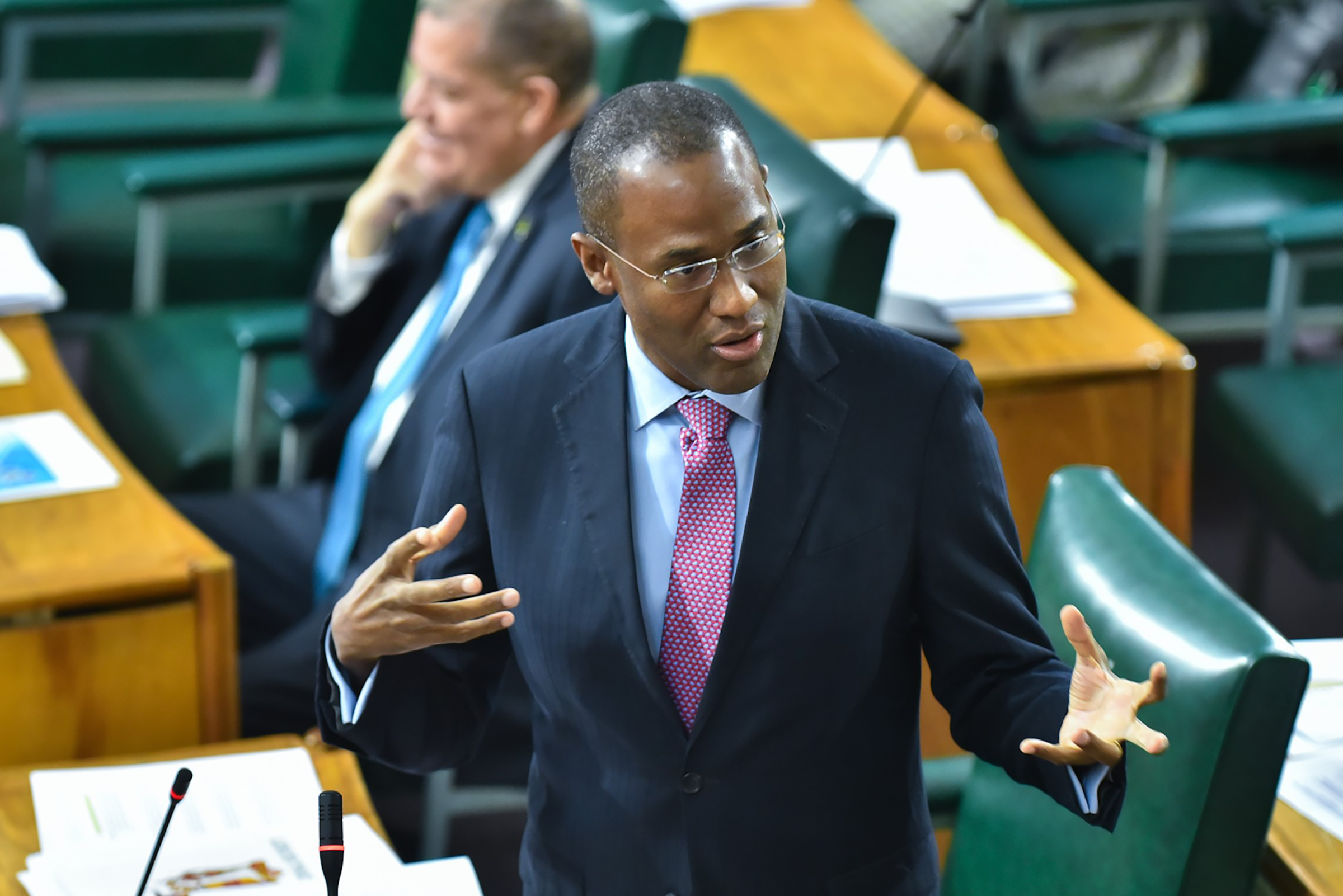
And so, Nigel Clarke leaves our sunny shores and ministerial post for Washington, DC, and a post at the International Monetary Fund (IMF). He has, as has been reported, steered the country through the COVID-19 pandemic, finished the tasks with the IMF and engaged in the grand public sector compensation review and restructuring programme. He leaves with plaudits from the private sector, which has seen a boom during his term; he leaves with praise from the hotel and BPO sectors; and he leaves with the badge of having… and say it with me now… raised no new taxes.
He can leave with a smile on his face, he has fulfilled his task and the task of his class, continued the stabilisation of the Jamaican economy and made it welcome to foreign investment. He smiles while the workers suffer and mourn, not feeling the benefits of the roaring economy both he and the Prime Minister speak of.
For a while there have been no new taxes on companies and people — note that it is not just the people who benefited from this. The cost of living, which exclusively impacts humans, has gone up. Bread prices have soared to over $500; chicken prices have gone to over $350 a pound, ice, sugar, flour, detergent, baby formula, everything has increased during the roaring economy.
Yes, Nigel has done his job well, managing the economy in such a way that the benefits accrue at the top and stay there. Sure, the masses will get a one-off 20,000 cheque, but once it’s spent that’s it, and the joke is, you will only get it if you are already locked in the tax system — a move designed to exclude thousands of Jamaican workers who engage in the grey economy.
During Dr Clarke’s tenure we have seen credit unions, building societies and other friendly societies merge or even become full banks. That is not to the benefit of the worker who will now find it harder to get access to deposit-taking institutions.
The worker finds it difficult to obtain loans from banks, difficult to obtain State grants or access programmes, making things like farming nigh impossible, but business is booming for those in construction, finance and tourism.
Nigel has performed miracles, that much is true. He has presided over a no-growth. Kudos must be paid to him for lowering the nation’s debt-to-GDP ratio, but in the grand scheme that means nothing to the woman at the gas station filling up their tank.
Will the introduction of a new finance minister herald a new dawn for Jamaican workers with easier access to capital, talks of utilising State lands in a planned way for farming, or making it easier to enter manufacturing? That is unlikely. The new boss is the former deputy to the previous boss; the policies will remain the same and the worker will continue to be shafted. What has been heralded as the best economy post-independence — this is a lie, growth was better in the 60s — will continue to be one of the harshest for the workers.
Housing continues to be out of reach of normal young Jamaicans; employment, while not scarce, provides the bare minimum unless you work in specific sectors and even then at certain levels. Dr Clarke can smile while he walks away, but he walks away leaving the economy much the way he found it, low debt-to-GDP ratios, no growth and workers who continue to have to tighten their belts. His biggest achievement, and probably what got him the job, was not the management of the economy during COVID, but his pushing through of the compensation review despite the pushback from all sectors.
Despite the massive amount of love shown to the private sector and their genuine love for Nigel, they seem to have grown weary of Dr Andrew Holness and see it fit to pass the baton to their other golden boy in Mark Golding. While I will be happy to see the back of the Jamaica Labour Party (JLP) Government and their slavish adherence to their financial masters, I do not see the People’s National Party (PNP) acting much differently if and when they come to power. What will be different will be that there will at least be an environment in which workers’ rights and empowerment won’t be viewed with suspicion. That, though, will be the only breathing space afforded as even the Fabián policies on offer don’t go far enough and the onus will be on the worker to organise in order to mobilise effectively.
We must look to create new friendly societies, community organisations, land cooperatives and so on. We must organise ourselves in such a way that when the inevitable happens and the new government dances further to the tune of unrestricted capitalism we the workers are prepared to fight back. We must become active in our unions if our jobs are affiliated with one, and if they are not, then we must seek to gain representation and then bend the union to the will of the worker,
What Dr Clarke and his ilk have implemented is merely the thin edge of the wedge. A more rapacious form of capitalism is on the horizon in Jamaica and we must be prepared. With the Independent Fiscal Commission coming on board next year we can expect further assaults on worker wages and pushback on any increase in State spending on the social front. We must be ready to fight back, demand that they listen to us and that Nigel’s creation bend to our will. That can only be done through organising.
It isn’t enough to simply point out the obvious growing inequalities, it does us no benefit to stay home and not vote. This is a class war. The rich are already organised and the onus is on the workers to rise to the challenge. Is it 1938? No, the historical situations are different of course. But with workers’ rights still on the chopping block through contract labour, and priority going to finance and tourism it is clear to see that the workers will not be the winners if the rich get their way.
If we want a future, then we must wipe the smile off the face of Dr Clarke and create an economy which works for all. This can only be done by empowering the worker, giving them more say in how companies operate, providing loans and land, not with a minimum wage which is barely above starvation levels.



